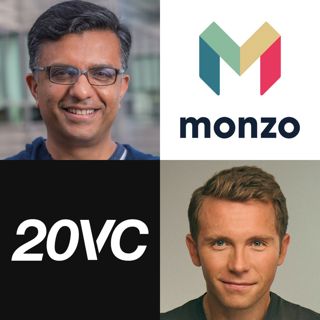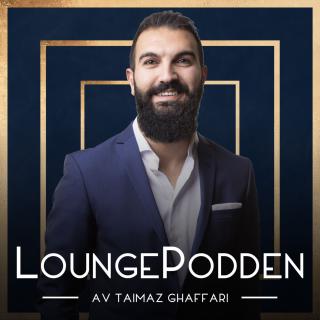
20VC: Monzo: The Greatest Turnaround in Tech: From £40M Revenues, Layoffs, Downrounds and Low Employee NPS to $1BN in Revenue, Profitable and 10M Customers with TS Anil, CEO @ Monzo
TS Anil is the CEO @ Monzo, where he has been the mastermind behind the greatest turnaround in tech in the last 10 years. When TS took over at Monzo they had £40M in revenue, very little runway, had a...
13 Feb 202556min

20VC: The $5BN Company Built from the Belgian Countryside | The Story of Odoo: The Company with No Plans to Sell, IPO & Their Billionaire Founder Who Does Not Care About Money with Fabien Pinckaers, Founder & CEO @ Odoo
Fabien Pinckaers is the Founder & CEO of Odoo, one of the most incredible businesses that you might not have heard of. Built from the countryside of Belgium, they do an astonishing $650M in ARR, they ...
12 Feb 20251h 15min

20VC: Why Model Providers Will Kill Many Startups Moving into the Application Layer | Why Deepseek is not a Threat to OpenAI & Why OpenAI Beats Anthropic | Apps vs Models vs Infrastructure: Where is Value in AI with Sridhar Ramaswamy, Snowflake CEO
Sridhar Ramaswamy is the CEO @ Snowflake, the $60BN public company with $3.5BN in revenue growing 30% per year. Sridhar joined Snowflake following his company, Neeva, being acquired by them for $150M....
10 Feb 202555min

20Product: Product Secrets Behind Uber and Opendoor | How AI Changes the Role of the PM & The Product Development Process | How to Hire the Best Product Teams & What No One Does That Everyone Should Do with Brian Tolkin
Brian Tolkin is the Head of Product @ Opendoor where he has spent the last 6 years and is responsible for product strategy and product and design teams. Before Opendoor, Brian spent an incredible 5 ye...
7 Feb 202544min

20VC: Affirm Max Levchin on Why Grading Talent by Letter (A or B) is Total BS | How to Create a Culture of Post Mortems and Writing | Why You Should Only Study Failure Not Success & The Biggest Surprises Scaling to $18.7BN Market Cap
Max Levchin is one of the great founders and technologists of our time. As the Founder and CEO of Affirm, he has built am $18.7BN monster in the buy no pay later space. Prior to Affirm he was one of t...
5 Feb 20251h 2min

20VC: Lime's CEO on Going from Losing $3 on Every $1 to $90M in EBITDA | How Lime Built the Global Leader in Micromobility When Competitors Went Bust | Losing 90% of Revenues in COVID and The Uber Deal That Saved the Company with Wayne Ting
Wayne Ting is CEO of Lime. The global leader in micromobility, the first to achieve a fully profitable year (2022). Last year, Lime did over $600M in gross bookings, $90M in EBITDA. Their 4-year top-l...
30 Jan 20251h 6min

20VC: Deepseek Special: Is Deepseek a Weapon of the CCP | How Should OpenAI and the US Government Respond | Why $500BN for Stargate is Not Enough | The Future of Inference, NVIDIA and Foundation Models with Jonathan Ross @ Groq
Jonathan Ross is the Co-Founder and CEO of Groq, providing fast AI inference. Prior to founding Groq, Jonathan started Google's TPU effort where he designed and implemented the core elements of the or...
30 Jan 202555min

20Sales: Why Every Sales Rep Should Do Pipeline Generation & How to Teach Them | Verticalised Sales Playbooks: When and How | How the Best Sales Reps and Leaders Structure Their Time with Carlos Delatorre, CRO @ Harness
Carlos Delatorre is one of the legendary go-to-market leaders of the last 20 years. Today, Carlos is the Chief Revenue Officer (CRO) at Harness, where he oversees global sales and go-to-market (GTM) o...
24 Jan 20251h 8min






















